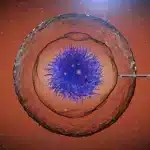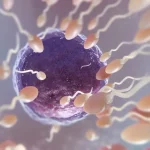
Donor egg conception gives potential parents the chance to be a parent when conception was not feasible otherwise. Donors offer the means, and intended parents have the option to choose between fresh and frozen donor eggs. Knowing about these choices is all about making wise choices.
What Is an Egg Donation Cycle?
The egg donation cycle is the clinical process through which donor eggs are harvested and used for in-vitro fertilization (IVF). The cycle can be performed using fresh or frozen donor eggs, with varying advantages.
Fresh Donor Eggs: Process and Benefits
Donor eggs are harvested and fertilized simultaneously, which includes synchronization between the donor and the recipient.
Process of Using Fresh Donor Eggs
- Donor Selection – The donor is chosen by the recipient based on genetic compatibility and medical history.
- Synchronization – Medication is employed to synchronize the donor’s and recipient’s cycles.
- Ovarian Stimulation – The donor is administered fertility drugs to stimulate the development of multiple eggs.
- Egg Retrieval – The eggs are retrieved when mature through a short non-surgical procedure.
- Fertilization and Embryo Transfer – The newly harvested eggs are fertilized and then placed into the donor’s uterus.
Advantages of Fresh Donor Eggs
- Increased Success Rate – The fresh eggs have a slightly higher rate of successful development.
- Improved Quality of Embryo – The eggs are fertilized on the spot and hence avoid getting damaged in the process of freezing.
- More Embryos – Fresh egg retrieval also produces more fertilized embryos, providing a couple with several chances at pregnancy.
Challenges of Fresh Donor Eggs
- Longer Process – The process takes weeks as synchronization needs to happen.
- Lower Costs – The cost is generally higher because of donor medications and medical procedures.
- Limited Availability – An available donor who is also meeting medical needs may be difficult to find.
Frozen Donor Eggs: Process and Benefits
Frozen donor eggs are already extracted, frozen, and stored to be used in the future. This is easier.
Process of Using Frozen Donor Eggs
- Donor Egg Selection – The recipients get to select from a frozen egg bank based on their preference.
- Thawing Process – Eggs to be used are thawed before fertilization.
- Fertilization and Embryo Transfer – Eggs are fertilized in the laboratory and the good embryos are transferred into the recipient’s uterus.
Advantages of Frozen Donor Eggs
- Instant Availability – No waiting for synchronization of the donor; it starts when the recipient is ready.
- Lower Cost – No need to pay for retrieval as this has already been completed.
- Convenience – Recipients have more freedom without a donor’s availability.
Challenges of Frozen Donor Eggs
- Probable Lower Success Rates – Even with high success rates, freezing and thawing will probably destroy the quality of the eggs.
- Limited Egg Quantity – There are usually fewer eggs present per cycle than if they were fresh from a donation.
Freeze Your Eggs: Understanding the Process
Egg freezing enables women to bank their fertility for the future. The procedure includes ovarian stimulation, egg retrieval, and freezing eggs using sophisticated cryopreservation technology.
What Is the Best Age to Freeze Your Eggs?
The ideal time to freeze eggs is before you turn 26 years old because egg quality decreases with age. Freezing eggs when you are younger in life allows you to have a successful pregnancy when you are older.
Egg Donor Qualifications: Who Can Become an Egg Donor?
Women must meet some lifestyle and medical requirements to become an egg donor. They are as under:
- Age Group – Most clinics welcome donors in the age group of 19 to 30 years.
- Good Physical Condition – No hereditary disease or medical or genetic disorder.
- No Smoking and No Drug Taking – Healthy Habit.
- Regular Cycle – Indicator of good fertility health.
Egg Donor Compensation: What to Expect?
Egg donor compensation is different from clinic to clinic and donor experience. Compensation is $6,000 to $15,000 per cycle depending upon the donor’s qualifications and where she lives.
How Long Is an Egg Donation Cycle?
An egg donation cycle is of different lengths depending upon whether fresh eggs or frozen eggs are used:
- New Egg Donation – 4 to 6 weeks, including screening, ovarian stimulation, and retrieval.
- Frozen Egg Donation – 2 to 4 weeks for the recipient cycle due to pre-stored eggs.
Which Option Is Right for You?
The selection between fresh and frozen donor eggs is based on several factors like cost, convenience, and success rate. Consulting with an experienced fertility specialist helps it easier to make the right decision.
For professional consultations and services, please call Eggdonors4All at 212-661-7177. They provide full-service solutions to donors and recipients in NYC by their professionals.
FAQs About Fresh vs. Frozen Egg Donation Cycles
Q: What is the difference between fresh and frozen donor eggs?
Ans: Donor eggs received fresh are inseminated on the same day, with synchrony between recipient and donor. Donor eggs received in advance are stored and thawed as required, with greater flexibility and reduced treatment cycles.
Q: How much compensation do egg donors receive?
Ans: Egg donor pay is not typical but typically between $6,000 and $15,000 per cycle, varying by egg donor’s qualifications, clinic, and geography.
Q: Which option has a higher success rate—fresh or frozen donor eggs?
Ans: Both frozen and fresh eggs are extremely successful. But fresh eggs are marginally higher in success rates since they are fertilized immediately upon extraction, having less opportunity for freezing and thawing damage.
Q: Where can I learn more about egg donation in NYC?
Ans: For expert guidance on fresh and frozen egg donation cycles, contact Eggdonors4All at 212-661-7177. Their expert staff provides personalized care for donors and intended parents in NYC.
Q: Who qualifies to become an egg donor?
Ans: Egg donors must be qualified, i.e., 19 to 30 years of age, healthy reproductive status, healthy BMI, no history of drug abuse or smoking, and clean medical record.

Dr. Kulsoom Baloch
Dr. Kulsoom Baloch is a dedicated donor coordinator at Indian Egg Donors, leveraging her extensive background in medicine and public health. She holds an MBBS from Ziauddin University, Pakistan, and an MPH from Hofstra University, New York. With three years of clinical experience at prominent hospitals in Karachi, Pakistan, Dr. Baloch has honed her skills in patient care and medical research.







